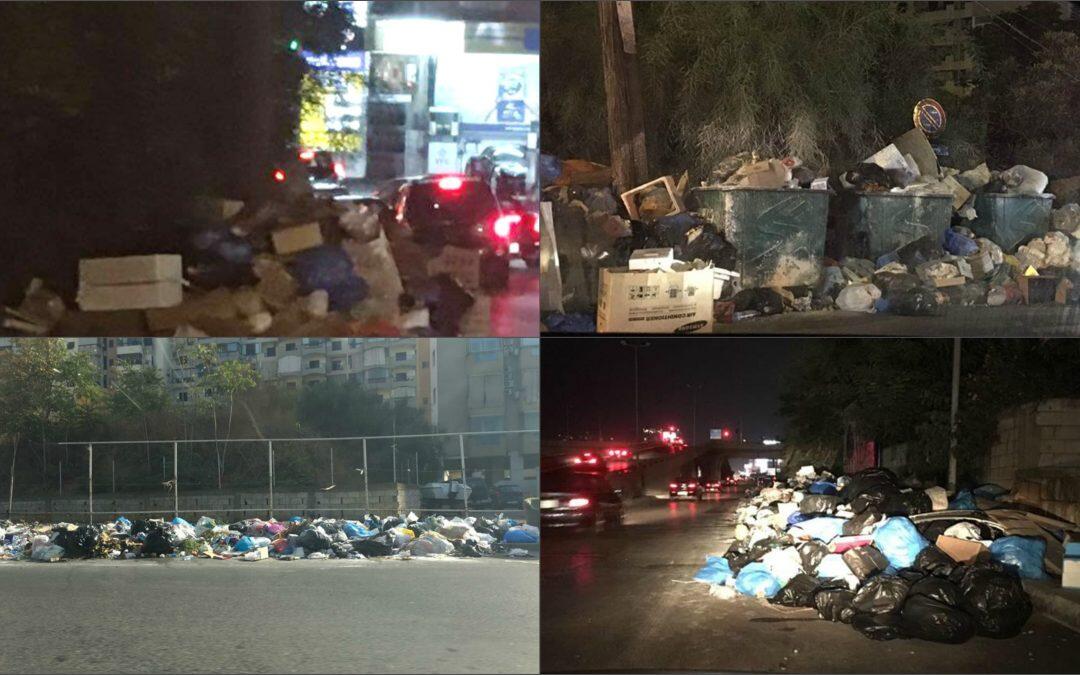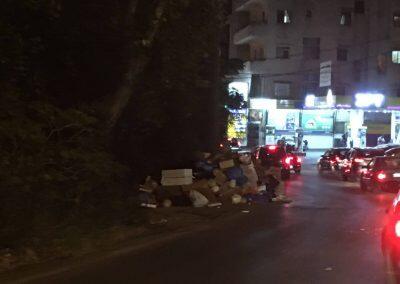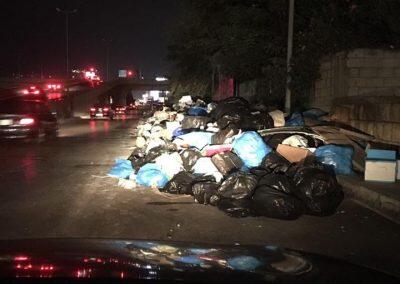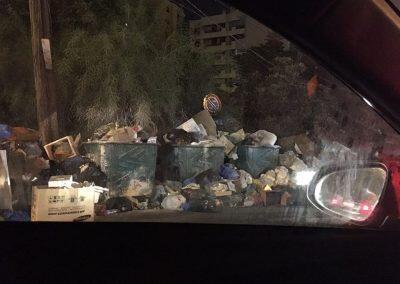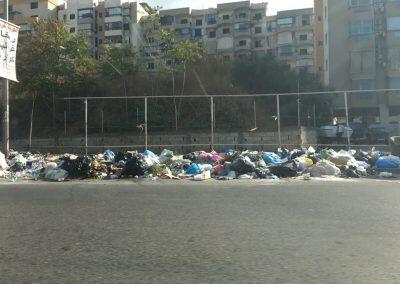Garbage is going to be lifted off the streets in Metn and Kesserwan areas in Lebanon, as the Agriculture Minister Akram Chehayyeb announced on Tuesday the 13th of September. Some might find this good news, if they did not know the bigger catastrophe behind it; a 120,000-meter unsanitary landfill in Borj Hammoud area.
As we display “oh so beautiful” pictures of garbage filling Metn and Kesserwan streets, we present informed sources’ opinion on the matter, while tackling the environmental aspect (the most important yet neglected part in the whole story), and mentioning the stand of municipality where the landfill is going to be established.
A decentralized solution?
While “Kataeb” party headed by Sami Gemayel has been opposing the establishment of the landfill for a while now, “there seems to be no better choices at the moment”, environmental journalist Bassam al-Kantar, who has been following up on the issue informed us.
Agriculture Minister Chehayeb announced yesterday that “the public waste crisis in the areas of Metn and Keserwan will finally be resolved.” Speaking at a press conference held in his office in Central Beirut, Chehayeb discussed the decentralization management of the waste crisis, calling on municipalities to choose locations for dumping waste piles momentarily, National News Agency (NNA) reported.
He said that “Sukleen will start removing trash from 45 Metn and Keserwan towns whose municipalities are ready for the process.”
“The contractor tasked with setting up the Bourj Hammoud landfill has been asked to work day and night to make up for the delay,” he added, noting that the landfill will open on October 7.
Chehayeb noted that “the only positive outcome following the recent Bourj Hammoud sit-in was the unanimous agreement over the need for both waste dumps in Bourj Hammoud-Jdeideh and Ghadir-Costabrava, since this is the sole obligatory prelude to a final decentralized solution to the waste issue in the end.”
On Sunday, the student body of Kataeb party held a sit-in in front of Bourj Hammoud landfill to protest the use of said landfill.
Kataeb leader Samy Gemayel announced that the party will temporarily suspend its sit-in, saying that decentralization has finally kicked off.
Fighting corruption
Speaking at the protest site, Gemayel affirmed that no one will hinder the party’s anti-corruption fight, adding that decentralization is being obstructed given that it cuts off illicit gains and commissions.
“We will carry on our battle against corruption. We consider such a battle as a top priority given the fact that it affects our daily lives,” Gemayel said, adding “Decentralization is a must to eradicate corruption and stop all dubious deals”.
Gemayel’s recent announcements have been really “bold” faced with much corruption that Lebanon has had more than enough with. While Kataeb leader seems to be speaking the truth in front of everyone; something we’re not much familiar with when it comes to Lebanese politicians, and while he said on Sunday “We will stand against anyone who tries to obstruct the establishment of sanitary landfills,” we present “greenarea.info” environment expert’s opinion that supports this view.
Something could still be done
Dr. Naji Kodeih, environmental expert at “greenarea.info” sees that “the Lebanese government has adopted a non-environmental choice”, explaining that “they have been distracting people with details, so that they go on with their “bad” choice of establishing coastal landfills, and give false information about municipalities”.
He also said that “the TRICK is that the government has adopted landfills in Costabrava and Borj Hammoud, by using the Independent Municipal Fund for the implementation of this decision/plan”.
“Unfortunately, the government says that it let municipalities find their own solution, but this corrupt government did not give them the amount of money needed to establish sorting and treatment plants”, he noted.
Kodeih insisted that “something could still be done, and it is not yet too late; they lied to people when they said that time is flying,” adding “They can decide to establish treatment plants right now”.
While he pitied the situation that we have reached saying that “the government is not giving up on the idea of investing in the waste crisis for material gain”, he said that “Borj Hammoud municipality was right when it announced that it will only receive sorted wastes”.
After the 200-million-dollar landfill… What’s next?
On the other hand, environmental journalist Bassam al-Kantar, who has been following up on the waste crisis in Lebanon since it first started, told us that “we cannot predict for how long the landfill will stay, because this depends on the amount of wastes it can contain”.
What’s next though?… “We do not know, especially that it is nearly impossible for Borj Hammoud landfill to be bigger than 120,000 meter, because reclamation would cost lots of money”, he noted.
Al-Kantar also added that “Naameh landfill started with 120,000 meters as well, but it was made into 300,000 meters afterwards; It was easier, because it’s not situated near the sea”.
Asking him about the cost of establishing Borj Hammoud landfill, he replied: “It costs around 200 million dollars”, and he also said that “municipalities did not offer any site for the establishment of plants, while they could have done that”.
Metn-Kesserwan residents: This is what we want!
“greenarea.info” spoke to a number of residents in Metn and Kesserwan area. They have sent us the following pictures…
Residents of “garbage occupied” regions expressed their anger of the waste crisis. “Garbage has reached our home”, as Vanessa living in Dbayeh said. According to her, “it is not enough to remove garbage from the streets, without finding decentralized landfills in all Lebanese regions, making sure that the landfills are away from residential areas”.
Rony, on the other hand, said that “most of the garbage that was put in a green area in Dbayeh was burned when a large part of the forest burned”, adding “I no longer take this way home, because I could no longer smell a beautiful aroma in the air after the forest was filled with trash, and then it (the forest) was burned”.
It is such a pity that a country we view as a “paradise on earth” in the Ministry of Tourism’s video, turns into a waste pile. What is even sadder is that Lebanese politicians think about their own interests and not about those of the citizens. It is not yet too late to establish sorting and treatment plants, but perhaps, they do not bring the same amount of money for anyone too drowned in corruption.

